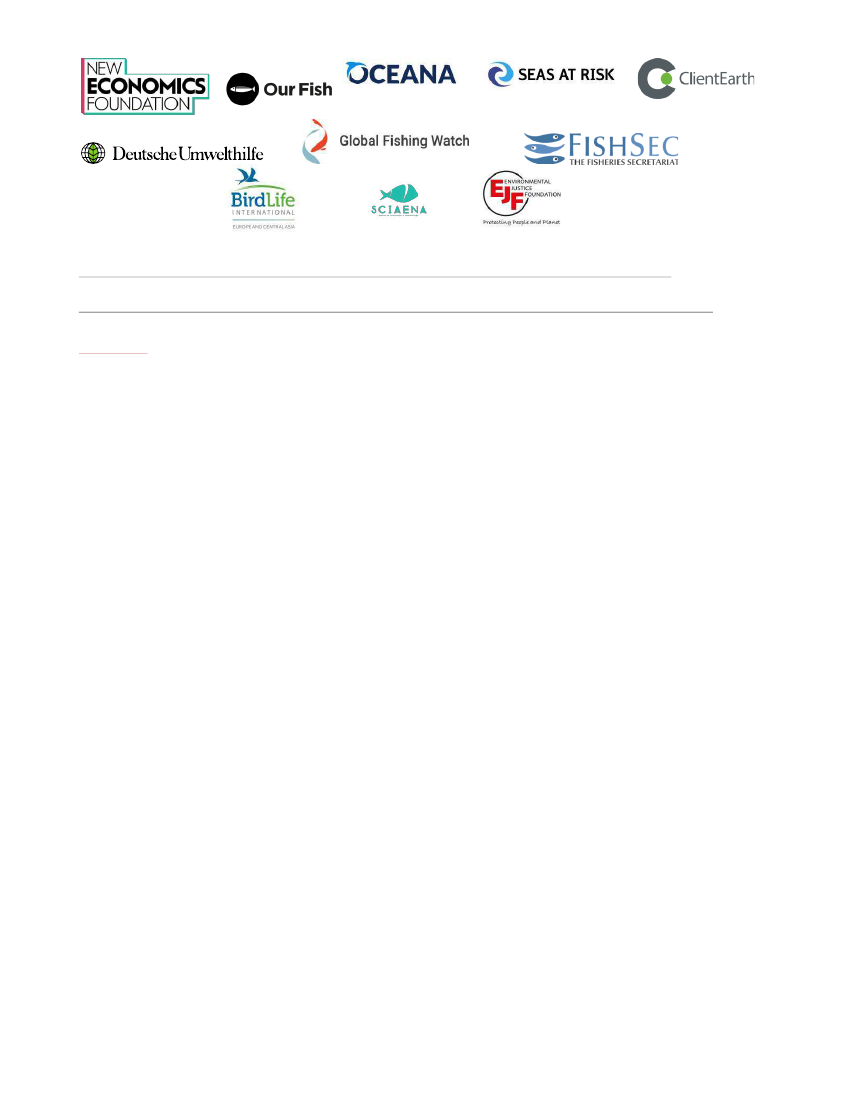
S
ETTING THE RIGHT SAFETY NET
: A
FRAMEWORK FOR
FISHERIES SUPPORT POLICIES IN RESPONSE TO
C
OVID
-19
S
UMMARY
Our relationship with nature is our link to life; and that link is strained. The Covid-19 global pandemic requires
emergency action to address immediate health concerns and to cushion economic impacts. Yet, such emergency
a tio
ust e take i the o te t of a wide pla fo Eu ope s futu e a d guided
a a itious Eu opea
Green Deal to avoid exacerbating the pre-existing climate and nature crises while dealing with the pandemic.
We need to remedy the broken relationships that endanger our planet and deepen inequalities within our
society. The ocean is the source of all life, yet we are putting it under unrelenting pressure. Easing that pressure
and restoring ocean health will deliver enhanced resilience to the impacts of climate change and safeguard key
natural elements that may equip us with countless more solutions to future and unexpected challenges.
While disruption in seafood supply chains has brought temporary relief to wild fish populations, this should not
be celebrated. This environmental improvement has not come about due to any deliberate transition plan for
workers, nor will any environmental relief prove lasting once the public health crisis passes. Environmental
improvement is essential, but it should be achieved in a socially just manner.
A principle-based approach provides a useful framework to assess whether fisheries support policies in response
to Covid-19 will aid the path towards a healthier fishing sector, public, and marine environment.
Ten principles are proposed:
1)
Concurrent crisis response:
Policies to address one crisis should have a positive impact on other existing
and anticipated crises.
2)
Efficiency:
Obtain the best results with limited resources.
3)
Rationality:
Effective policy requires a linkage between the crisis being addressed and the policy
proposal.
4)
Speed:
A crisis situation requires a rapid response.
5)
Institutional integrity:
Support measures should respect existing institutions.
6)
Anti-abuse:
Ensure that policies are directed towards their intended recipients.
7)
Consultation:
Engage industry and civil society in policy generation.
8)
Clarity and transparency:
To protect against abuse, policy intent should be stated and outcomes
monitored.
9)
Conditionality:
There should be clear eligibility criteria and transparent procedures for application.
10)
Integration:
Fisheries support policies do not exist in a vacuum and should strengthen policies in other
areas.